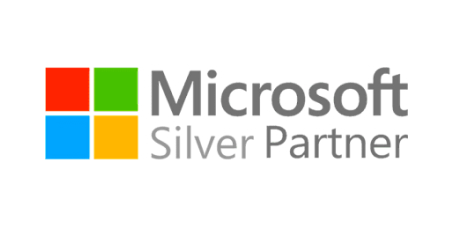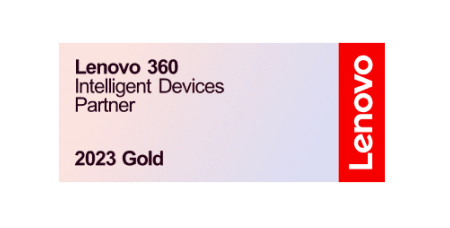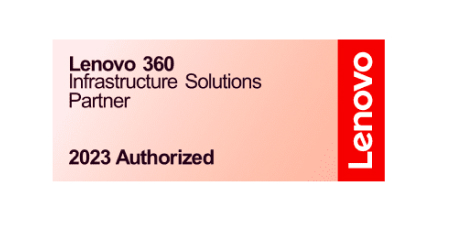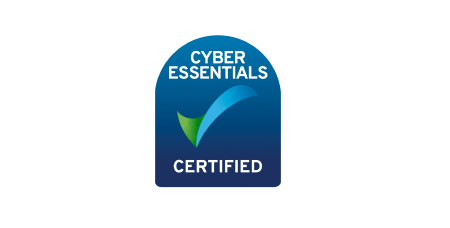Making IT Amazing
Why do we have the paradox that instead of improving agility and cohesion, ‘enabling’ more flexible working patterns, the opposite can be the case with IT investment?
Instead of better information flow, for example, access to relevant data is more complex, while any expected reduction in the operational costs of the business fail to materialise.
The implications are increased vulnerability, as well as an impact on effectiveness, an increased difficulty in remaining competitive and being on the same wavelength as their customers. For a report being researched and written by DECISION magazine for HB Tech, companies consider what they need to address if IT is to deliver key objectives.
This is one of the papers to be published in the report.
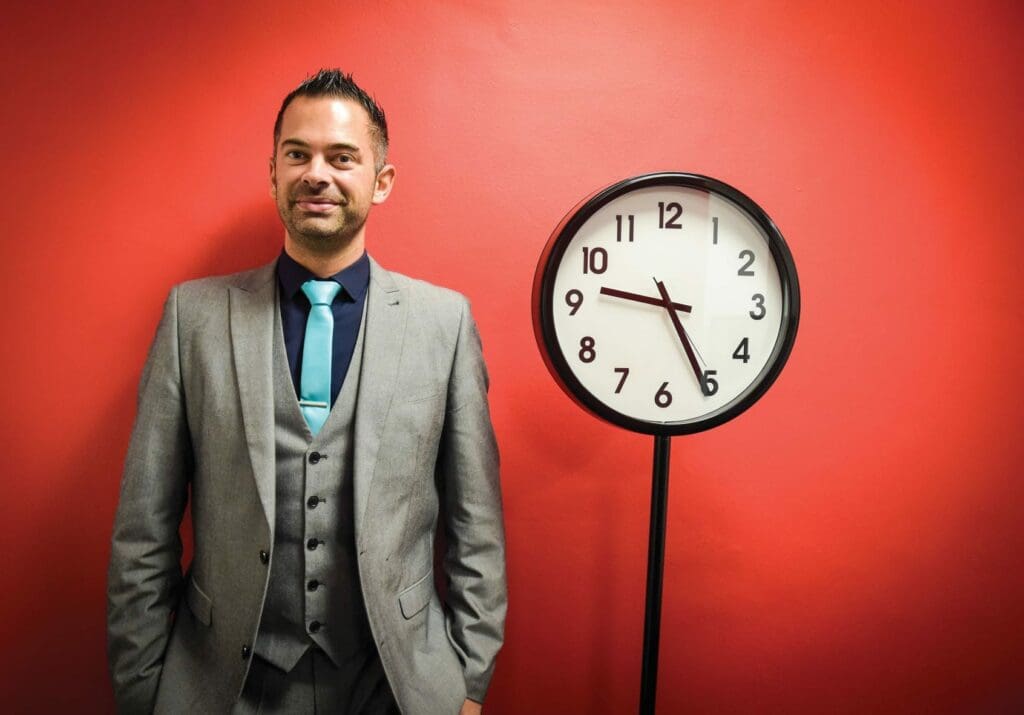
Matt Fox
Managing Director
Dynamite Recruitment
‘’IT SHOULDN’T MAKE service less personal, but we now live in an age where someone has become, to all intents and purposes, simply a digital entry on a database. I’ve got a view on that. Morphing into this mindset is the biggest mistake a company can make.”
“All too often,” says Matt Fox, founder and managing director of Dynamite Recruitment, “interaction becomes faceless as a result, or worse, it doesn’t happen at all. Often, for example, candidates never hear back from a recruiter as to whether they have got the job or not, or even an interview. I don’t understand why. IT should make it easier to acknowledge people as individuals.
“From a service perspective, the devil is in the detail. The baseline product we offer is broadly the same as any other. The primary difference is in the delivery, but there’s no one element which stands out. It’s all the cogs working together, and what IT should enable you to achieve is consistency of approach.
That said, it all rather depends on what cogs a company actually has in place. Explains Fox: “We produce a guide for candidates which is available electronically and in print which explains everything, including how to prepare for an interview, and how to be confident. I know that technology makes it quite easy for competitors to copy that, but it’s still all down to culture, ethos, whether they believe the sizzle on the sausage is actually important.
“If the little things slip, or if the process itself delivers service rather than enabling service to be delivered, then it loses authenticity. You have to decide whether you want IT to make you beige or enable you to be outstanding.”
Not that Fox is attempting to define what differentiates Dynamite Recruitment as purely service. That’s because he believes that in itself isn’t what the customer is looking for. “I would say what has to set a business apart is performance and delivery,” he says.
“I’m aware that the average is for an agency to successfully fill one role for every three permanent posts they try to fill. If you flip that, it’s the equivalent of two out of three customers leaving without having received what they came for. We operate at more than double the success rate compared to the industry average. And IT should make the delivery of what the customer wants more effective and pleasurable for all concerned. Delivering service is all about caring a bit more. I’m so proud that we have more than 700 five-star reviews, especially as some are from candidates we didn’t place.
“In some ways because IT makes it so easy to focus on volume, there is a risk of entering a race to the bottom. There will always be agencies which will fire as many CVs as possible at a vacancy in the hope that one will stick. But that is deploying IT to defeat the purpose and value of an agency.
“What we should be doing is understanding the culture of a client company and identifying the candidates who will engage with it. If IT is simply used for increasing volume and speeding delivery, rather than for research and making recruitment more efficient, what does that achieve?”
Fox remembers it was close to BC (as in before computers) when he first started out as an employee in recruitment. “We had a card for every candidate with a Polaroid photo of them stapled to it,” he recalls. “There was one computer for the whole office and if you wanted to email someone, you asked a person at the front desk to do it for you.
“Today our CRM system means we can present a candidate to the client, we can web chat in real time about the applicant, and the client can then fix an interview appointment time on-line. The system enables us to notify candidates immediately of the shortlisting outcome which is so important as far as maintaining our clients’ employer brand is concerned. “You’d be amazed how many unsuccessful candidates express their thanks for the feedback because unacceptably, most recruiters just don’t bother. We’ve also managed to build a candidate portal so our temps can track their entire journey with us. They have visibility over all their timesheets, pay, pension, assignments and the status of an application they may have made for a permanent opportunity.
“And IT enables us to create from analysis what our likely revenue will be based on the number of calls made by specific people, which takes into consideration their talk-time, number of opportunities and interviews. While it isn’t an exact science, it’s a useful tool.”
It isn’t just effectiveness of process which is determined by IT. “How we access the candidate pool has had to change with technology,” Fox explains. “We still do use Facebook of course but the youngest generation of jobseeker uses TikTok, Snapchat, and it is only a matter of time before we will have to look at other different platforms to engage with the candidate. We need to be visible on their platforms because having a phone call to start things off is outside of their comfort zone.
“Covid-19 has also meant that the conversation piece has changed. We all had access to Skype, Teams, Zoom beforehand, but it didn’t seem professional to use them as a matter of course. Now it’s commonplace for the entire hiring, and in many cases, onboarding processes to be completed online.
“Similarly, flexible working isn’t new but our attitude towards it has changed because of Covid-19 and the initial lockdown. Typically a managerial approach would have been if they can’t see someone working, the assumption is that they’re not. But with lockdown, companies have had no option but to trust their people. And I suppose technology means people who need a quieter environment can perform certain tasks better from home.
“Some companies were better set up for home working than others, especially if they have a field sales force. I accept there will be times when it’s not convenient to be in the office, so things might be a bit clunky that day, but I think a team needs that instant pick you up camaraderie that working from home can’t provide. It’s the actual team piece, someone turning to say to a colleague ‘what’s the problem’? You can’t replicate that working in isolation.
“Just because technically, IT makes it perfectly possible not to have to be in the office, that doesn’t necessarily mean it’s the best way of working.”
And what concerns Fox is that IT doesn’t necessarily achieve what was intended. “Systems which meet expectations are relatively few and far between,” he suggests. “I’ll say this is what I want IT to do and the provider of the technology says this is how it will perform, this is the service package, and here’s the price. So why faced with such simple criteria, can it be stuffed up as a matter of course? Take our CRM system which can require a candidate to fill-in a second form with their details, and I can imagine some will think why do I have to go through all that again. Should I have said I don’t want anything to have to be re-keyed? The problem is you can’t investigate every element of functionality before signing up.
“Gaining a competitive advantage through IT comes down to how much you are prepared to invest, but any system regardless of cost is only as good as the data you put in and also the information you’re able to extract from it. We’ve got a database of thousands of businesses and candidates, the product of a decade’s work, but any company will only achieve value from that if the system makes it easy for users to capture and input data.
“If that doesn’t happen, then people can be reluctant to use the system because it slows them down or it isn’t giving them the information they are looking for.”
So how much more of an impact will technology have on a company such as Dynamite Recruitment, now entering their second decade? “I can’t see a time when there will be a complete digital substitute for personal relationships in business,” says Fox. “Artificial intelligence, it is fair to say, already has an auto match function which will flag up people with keywords, but it’s still quite crude. While I’m sure the evolution of AI will add value to our business, that human touch will continue to be all important.”
Researched and published by
DECISION magazine
www.decisionmagazine.co.uk


